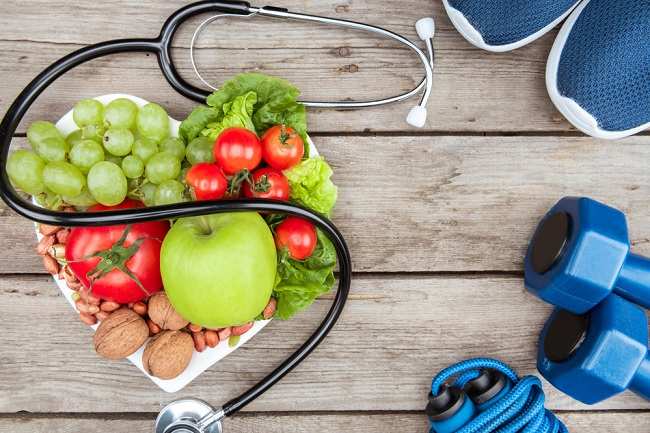Healthy Habits
Hello, my beloved, readers!
Welcome back to my blog.
Hopefully, all of you feel good and stay healthy.
Well, today I want to share about 'healthy habit'.
What us Healthy Habit?
A healthy habit is any behavior that benefits your physical, mental, and emotional health. These habits improve your overall well-being and make you feel good. Healthy habits are hard to develop and often require changing your mindset. Staying healthy for life requires making your physical and mental wellbeing a priority. A single unhealthy habit can put you at risk for a range of health issues. For example, regular physical activity is linked to lower risk for cancer, heart disease, stroke, obesity, mental illness, and falls among seniors.
Poor eating habits include under- or over-eating, not having enough of the healthy foods, we need each day, or consuming too many types of food and drink, which are low in fiber or high in fat, salt and/or sugar.

- Eat a variety of vegetables, especially dark green, red, and orange vegetables (3 or more servings a day).
- Eat a variety of fruits (2 or more servings a day).
- Eat whole-grain, high-fiber bread, and cereals (3 to 6 servings a day). Reduce or eliminate refined or processed carbohydrates; most of the grains in your diet should be whole grains.
- Drink fat-free or low-fat milk and eat low-fat dairy products.
- Choose from a variety of low-fat sources of protein — including eggs, beans, poultry without skin, seafood, lean meats, unsalted nuts, seeds, and soy products. If you eat meat, eat white meat at least four times more often than red meat.
- Reduce intake of saturated fats and trans-fats (such as partially hydrogenated oil) as much as possible.
- Use vegetable oils (like olive or canola oil) instead of solid fats.
- Reduce daily intake of salt or sodium. Reduce to less than 1,500 mg. per day if you are older than 50, or have hypertension, diabetes or chronic kidney disease.
- Restrict or eliminate "junk food" — foods that contain refined white flour, solid fats or trans fats added sugars, and are high in sodium.
- Restrict or eliminate sodas and other sugar-added drinks that are high in calories and contain few or no nutrients.
- If you drink alcoholic beverages, do so in moderation. Drink only when it doesn't put you or anyone else at risk.
To Lose Weight
- Reduce the number of calories you eat daily. Eat smaller portions—don't "upsize" your meals at fast-food restaurants.
- Follow the dietary guidelines above.
- Eliminate all sugar-added drinks from your diet. You can drink 100% fruit juice, unsweetened, but limit servings to one or two a day. Drink more water.
- Decrease the amount of time spent in sedentary activities, especially watching television. Use your screen-free time working on hobbies, house cleaning, yard work, or engaging in fun activities.
- Get moderate physical activity (such as walking, bicycling, swimming, or using aerobic exercise machines) for 30 to 60 minutes a day, at least five days a week.
- Do muscle strengthening and toning exercises at least 2 or 3 days a week.
Here’s how to change these habits:
· Change only one habit at a time. It doesn’t matter which habit you choose. Just choose one. You’ll want to do more than one but don’t.
· Create positive habits you enjoy. Read the last word again — if you enjoy it, the habit change will be easy. Replace smoking with positive habits you enjoy that fulfill the needs that smoking now fulfills (stress reduction, social lubrication, boredom relief, etc.). Replace red meats with healthy foods you enjoy.
· Start as small as possible. Just do 5 minutes the first week, and try to be as consistent as possible. Then do 10 minutes. Small change is by far the most effective method I’ve used for changing habits. The slow change lasts.
· Make it social. Find a partner or group to change the habit with you, so you’re more likely to stick with it.
Comments
Post a Comment